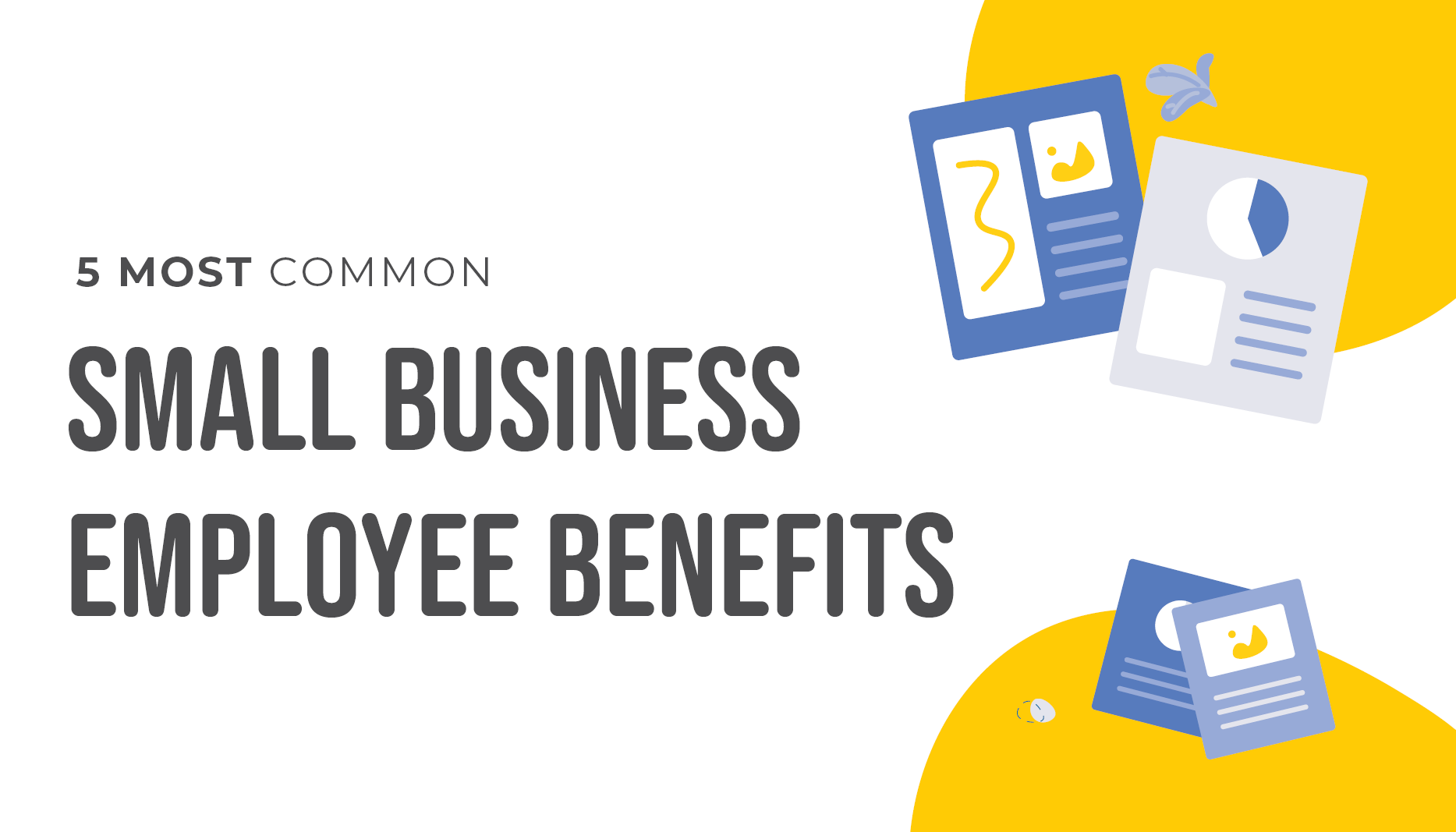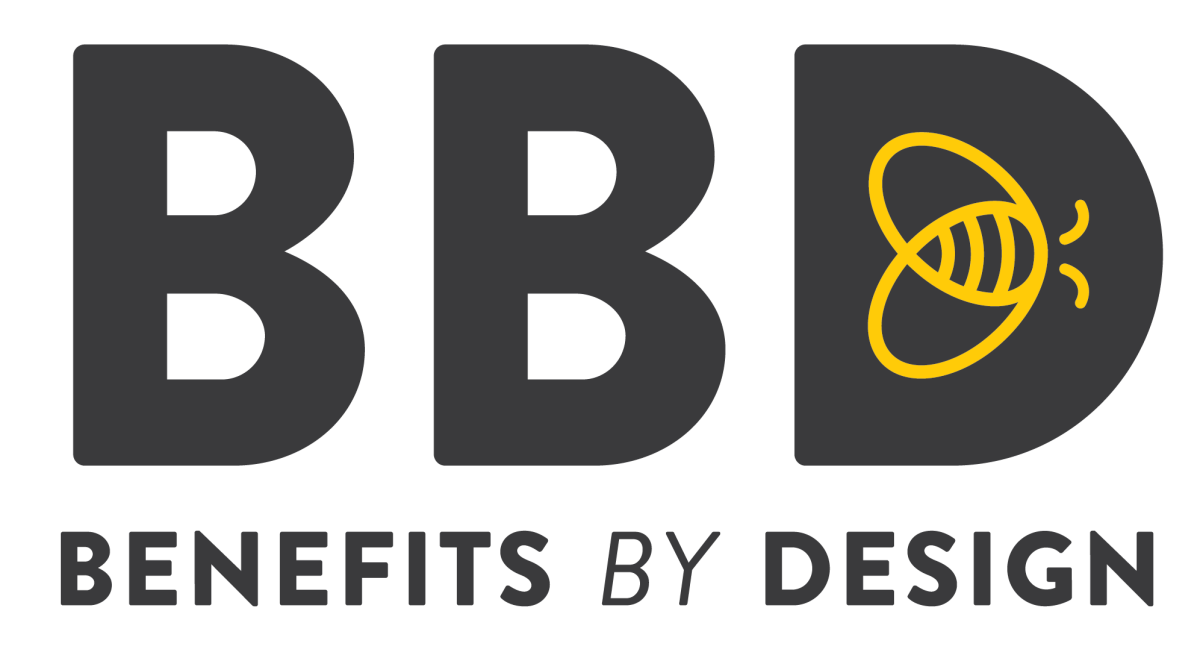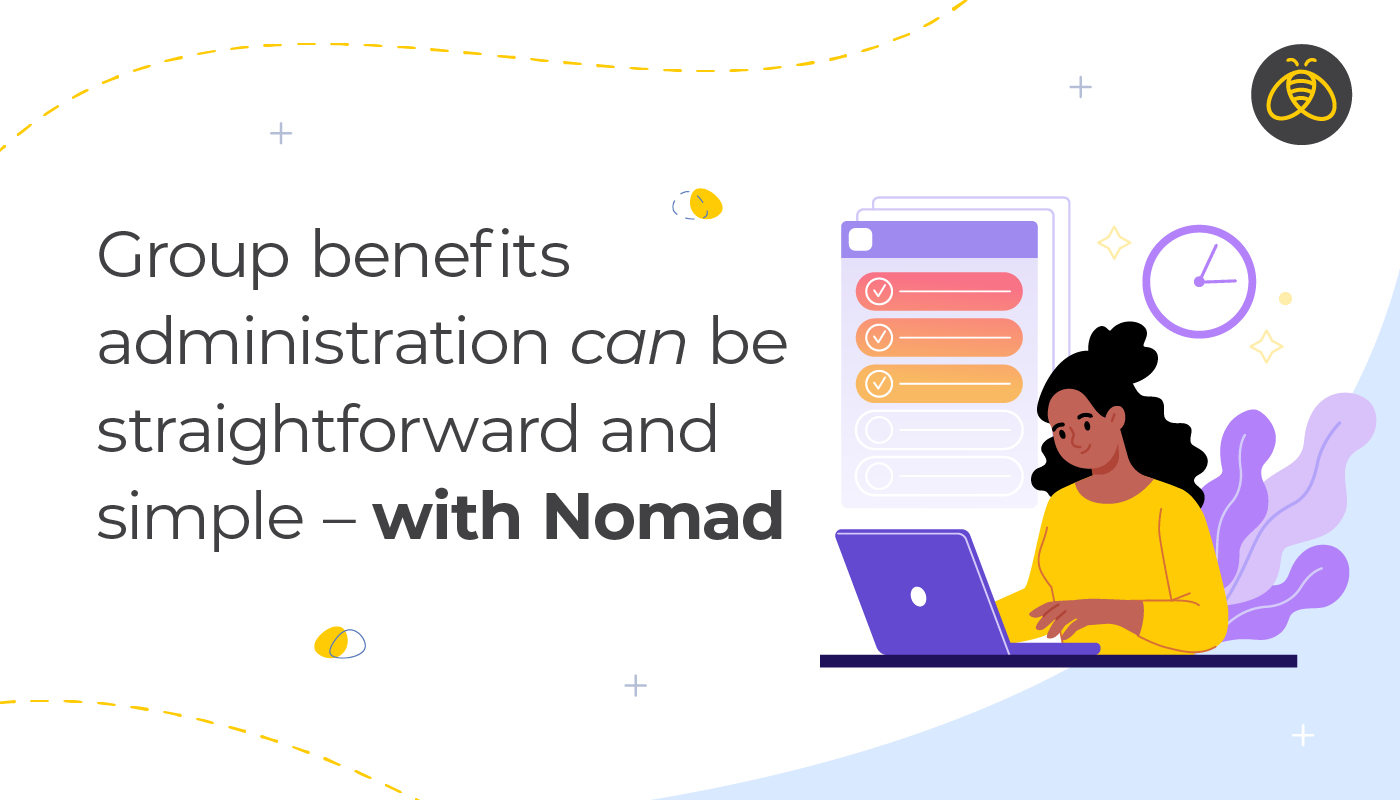[Handbook] 5 of the Most Common Small Business Employee Benefits
By: Benefits by Design | Tuesday June 1, 2021
Updated : Wednesday June 15, 2022
In an effort to help small business employers choose an employee benefits package, we looked at our own block of business to determine the most common benefits taken by small businesses. We narrowed the list down to the top five most common benefits.
Want the nitty gritty details? Download the Small Business Benefits Handbook
While the needs of each business and its employees will vary, these five options will serve as a good starting point for employer’s looking to start a small business employee benefits plan.
#1. Extended Health Care (EHC)
No surprises here — working Canadians want healthcare coverage. In fact, 95% of the small businesses we examined have Extended Health Care (EHC) coverage in place. It’s practically synonymous with group benefits.
Extended Health Care (EHC) is designed to supplement provincial healthcare plans by filling in a lot of the gaps in coverage or expanding on certain services. EHC coverage may vary, but generally offers coverage for common employee health expenses, such as:
- Prescription drugs (including high-cost drugs)
- Hospital accommodations
- Vision care
- Paramedical practitioners, such as a psychologist or chiropractor
- Emergency, out-of-country travel insurance
Group Health Insurance 101: What is Extended Health Care (EHC)?
#2. Dental Insurance
Next up is Dental Insurance. This is one of the most common benefits taken by small businesses, right up there with EHC. It’s also one of the most heavily demanded by employees, given that Canada’s provincial programs don’t offer much in the way of dental coverage.
Oral health has been called “a window into overall health” and the connections between the two are clear, so it’s no wonder Dental Insurance falls so high on this list. Dental Insurance generally offers coverage for:
- Basic Services — dental cleanings, fillings, extractions and other minor or common dental work.
- Major Restorative Services — dentures, crowns, bridges and other major dental work.
- Orthodontic Services — braces and other correction services.
#3. Life and Dependent Life Insurance
Next up is Life and Dependent Life Insurance. While EHC and Dental Insurance promote good health on an ongoing basis, this type of insurance is more about protection through really tough times, such as the loss of a loved one.
Life Insurance provides crucial income replacement in the event of a death and can cover debts and expenses during one of the worst times a person can go through. It’s a benefit you hope employees never need, but will be glad they have.
Like EHC, Life Insurance often comes to mind when you think of benefits, and is one of the first steps in providing “just-in-case” types of insurance.
#4. Accidental Death & Dismemberment (AD&D) Insurance
Accidental Death & Dismemberment (AD&D) Insurance often goes hand-in-hand with Life Insurance. AD&D is another type of insurance that provides financial assistance and support for covered employees when something catastrophic or unexpected happens. In this case, AD&D covers a person in the event of bodily harm or loss of life as the result of an accident.
Examples could include:
- Loss of limb
- Loss of hands, feet, fingers or toes
- Total or partial paralysis
- Loss of sight or hearing
- Loss of life
What You Need to Know About Accidental Death & Dismemberment Insurance
#5. Spending Accounts
There are two major types of Spending Accounts — Health Care Spending Accounts (HCSA)s and Personal Spending Accounts (PSA)s. Both of these Spending Account options have proven popular with small businesses, in large part due to their increased flexibility for employees, and cost-containment for employers.
Health Care Spending Account (HCSA)
A Health Care Spending Account (HCSA) offers reimbursement for a wide range of health and dental expenses. These expenses are often in addition to what is provided for under a traditional, fully insured plan with Extended Health Care (EHC) coverage.
List of Health Care Spending Accounts (HCSA) Eligible Expenses
As an example, if an EHC plan covers 80% of the cost of a prescription drug, HCSA dollars could be used to pay for the other 20%, saving the employee from paying anything out-of-pocket.
Everything You Need to Know About a Health Care Spending Account (HCSA)
Personal Spending Account (PSA)
A Personal Spending Account (PSA), sometimes known as a Wellness Spending Account (WSA), provides employees with additional health and well-being options.
List of Eligible Expenses With a Personal Spending Account (PSA)
The perks and coverages offered through a PSA are highly sought after by employees. Although they may not directly influence a person’s health in the traditional sense, PSAs can offer employees additional wellness options to improve their overall wellbeing and pursue hobbies, additional learning, and much more.
What is a Personal Spending Account (PSA) and How Does it Work?
Interested in learning more about small business employee benefits? Download the Small Business Benefits Handbook below, which contains:
- how (and why) to determine your benefits philosophy
- the most common small business employee benefits
- additional benefits options popular with small businesses, such as an Employee Assistance Program (EAP)

